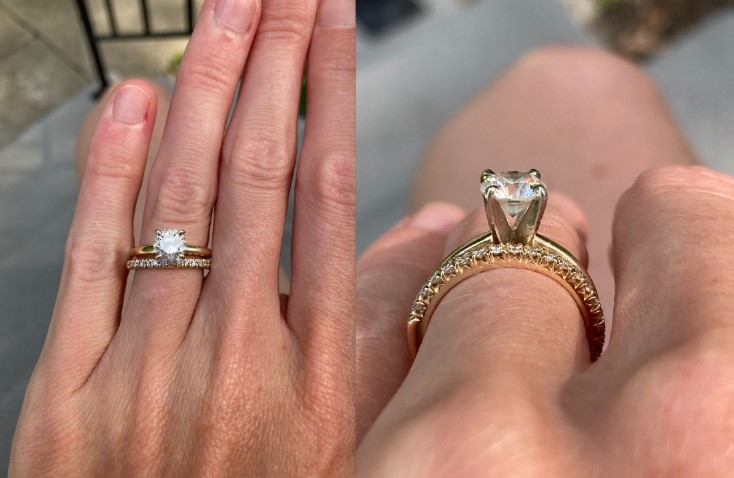A resident of Jammu and Kashmir reportedly located himself on the incorrect facet of the regulation for modifying his Mahindra Thar and was sentenced to 6 months in jail. The modifications he is reported to have manufactured to his car contain a tough leading, more substantial wheel and tyres as effectively as a substantial automobile siren. It is therefore crucial to examine to what extent a consumer can make modifications to his car or truck. This is critical simply because creating modifications may possibly invite legal proceedings.
People are compelled to make alterations simply because suppliers distribute features across distinctive variants which might be out of their achieve when at first getting the motor vehicle. For instance, a foundation variant of a motor vehicle may have smaller sized tyres than the increased variant or may perhaps not have a touchscreen program which has the function of Apple CarPlay and Android Auto which are arguably needed in 2022. Consequently, a client who can’t afford to pay for the greatest variant may possibly acquire the lower variant and afterwards, as revenue becomes out there goes and adds these functions to his motor vehicle. Perhaps this is why automakers like BMW have determine to switch to a subscription model which involves them inputting the demanded hardware demanded and creating it membership based mostly, so you can purchase the car but activate other options later on.
Components not exceeding two per cent of the vehicle’s bodyweight specified in the certificate of registration are permissible in India. Nonetheless, alterations which modify the standard framework of the car or truck so as to alter its simple capabilities have been designed illegal in India by advantage of Part 52 of the Motor Motor vehicles Act of 1988 which was later amended in 2000 and all over again recently in 2019.
This post seeks to look at the scope and ambit of Part 52 of the Motor Cars Act and the permissible restrictions of car alteration in India.
An examination of the components of Portion 52 of the Motor Automobiles Act, 1988 informs us that:
- No operator of a motor motor vehicle can alter the vehicle at variance with the particulars contained in the certificate of registration specified by the company.
- The engine or any element of it can be modified or transformed to make certain that it is operate by a different gasoline or battery or liquified petroleum gasoline or any other supply of electrical power by fitting a conversion package. The Central Federal government can prescribe technical specs, circumstances, ailments of acceptance, retro fitment and other similar issues for this kind of conversion kits and the modifications will have to comply with these conditions.
- The Central Federal government can prescribe specs, conditions for acceptance, retrofitment and other linked issues for the alteration of motor autos and in this kind of situation, the guarantee granted by the producer will not be regarded as void for the uses of this kind of alteration or retrofitment.
- A particular person can obtain subsequent acceptance of the registering authority for alterations and convert his vehicle into an tailored car or truck which have to comply with the problems approved by the central governing administration.
- Alterations produced with out prior acceptance of the registering authority need to be introduced to its notice within just fourteen times of building the alteration. The certification of registration along with fee has to be delivered.
- The Central Government can exempt alterations of automobiles in a fashion normally than the specified manner for any distinct reason.
- If an alteration has been manufactured without having the prior acceptance of the RTO, then the proprietor of the motor vehicle ought to report the alteration to the RTO inside 14 times of generating the alteration along with the certification of registration and the recommended price.
An alteration is described in the Portion as this means a alter in the construction of the automobile resulting in a alter in its simple feature.
The punishment for alterations is observed in Portion 182-A of the Act. In accordance to Segment 182-A(1) if a company, importer or dealer helps make or presents to alterations which violate chapter VII of the Act or rules and polices the punishment will be a greatest of one year in jail or with a fantastic of one lakh rupees for every the car or truck or both.
Even more, Part 182-A(4) offers that homeowners altering their vehicles, which include by way of retrofitting motor auto areas in an impermissible way faces up to 6 months in jail or with a wonderful of up to Rs 5,000 for each this kind of alteration or with both. Therefore, it is not only the proprietor of a car or truck who faces liability but even a maker or vendor.
A two-decide bench of the Supreme Court of India dealt with the interpretation of Segment 52 of the Act of 1988 and examined the extent of permissible alterations in the circumstance of Regional Transport Officer v K Jayachandra (2019). The form of alterations which ended up becoming examined concerned adjustments to the chassis of the car or truck, therefore really shifting the framework of the automobile.
In its assessment of the provisions of the Act, the courtroom took observe of the objects and reasons of the modification produced to the provision by Parliament in 2000, in accordance to which changes created were necessary to make certain the protection of highway customers by prohibiting alterations of any sort which include adjust of tyres of larger ability.
The crux of the judgment is that even though the RTO does not will need to be burdened for each individual small alteration this kind of as fitting extras, if there is any transform in the framework which will be considered as altering its “basic structure” and is at variance with the particulars of registration then these alterations are unlawful. The maximize in tyre measurement has sought to be designed unlawful in view of security worries by the legislature and this has been recognised and affirmed by the Supreme Court.
Nonetheless, soon after this judgment, in the identical calendar year, the Kerala large court experienced situation to deal with an particular person who made an application for changing a Power Traveller ambulance into a Hearse Ambulance in Jeffin Abraham v Joint Regional Transportation Officer (2019). Whilst the application was turned down, numerous structural alterations ended up produced to the van came to light-weight. While working with this, the court experienced celebration to interpret Area 52 of the Motor Cars Act. The court also noticed that the Ministry of Road and Highway’s has issued a clarificatory communication in look at of the judgment of the Supreme Court.
In essence what the ministry explained is that modifications can’t be created to the certificate of registration besides to the extent of the entries designed in the similar as for every the technical specs of the maker. The most essential clarification for our purposes is:
“A motor motor vehicle, modified by incorporating optional parts made available by its company or usually modified so that it proceeds to comply with the manufacturer’s specs, could not demand more certification. In the said communication, the Ministry has prescribed that the modifications that can be carried out by the car proprietor and would not entail more certifications are:
(a) Substitution of elements or components by equivalent areas or components.
(b) Substitution parts or factors with parts or components with equal functional performance.
(c) Optional pieces or parts as prescribed by the vehicle’s manufacturer.”
This clarification creates a predicament wherein a customer who purchases a vehicle and will increase its tyre dimensions by obtaining from dedicated tyre store will violate the law, whilst a buyer who goes to the seller, who is fundamentally an extension of the producer may not. Similarly, a customer who buys LED tail lights from a 3rd occasion alternatively of the supplier will also be liable underneath the law. This difference which has been established is perverse considering the fact that the object of the 2000 modification was ostensibly a basic safety problem. Several suppliers or sellers offer tyre upsizing both as extras or upgrades. If Portion 182-A (1) bars a manufacturer or supplier from earning alterations which violate the Act and its rules and the intendment of the 2000 legislation was against tyre upsizing, then we need to check with ourselves irrespective of whether these can in point be presented lawfully as equipment or upgrades.
There is also ambiguity as to what “continues to comply with the manufacturer’s specifications” indicates. Quite a few individuals make alterations this sort of as shifting the headlights to improved quality, some enhance the tail lights these are third bash components. Further it can be argued that headlight and tail lights are ‘basic features’ of the cars and trucks even however there is no structural alter in the vehicle. Tension horns staying put in are reportedly major to highly-priced fines currently being issued by the website traffic police, but what if the shopper purchases the horn which is a real accent provided by the producer?
Since the enhance in tyre measurement found unfavourable mention not only in the objects and good reasons for the 2000 amendment but a judgment of the Supreme Courtroom and Kerala large court, the argument that as extensive as a buyer chooses a better tyre size which is specified by the maker, it is permissible would not maintain a great deal drinking water. Further more using the word “may” makes more confusion as it is not necessary that compliance with the disorders of the communication would demand no registration.
In view of these judgments, it will be useful to examine what type of modifications are being presently available by third bash stores in the industry:
- Tyres
- Clutch overhaul
- Ecu/ TCU Tuning
- Suspension
- Brake upgrades.
- Customised exhaust methods
- Exterior customisation
- Automation and hydraulics.
These are just some of the publicly available modifications of which all of which tumble foul of Segment 52 of the Act as they would change the vehicle from what was made by the manufacturer and specified in the certificate of registration. These modifications arguably alter the essential capabilities of the car or truck. Further more, in circumstance a consumer needs to make these modifications he will mandatorily have to tell and seek out consent of the jurisdictional RTO.
In perspective of the over permit us look at some illustrative conditions which may occur when a customer wishes to make some modifications to his automobile:
1. A consumer buys a vehicle and does not like the seat addresses. There are no facet and curtain airbags: The change of seat covers will not outcome in any alter to the construction or standard capabilities of the auto and thus is suitable.
2. A consumer purchases a reduce variant of a car or truck which comes with 15-inch tyres. The bigger variant of the automobile arrives with 17-inch tyres. The purchaser can approach the authorised seller for upsizing the tyres, however upsizing the tyres outdoors the purview of the maker is a gray location in look at of the judgments of the courts and the clarification of the Ministry. There will be no issue in upgrading to a better models tyre which are the exact sizing as the tyres the car or truck came with. This is since the tyre measurement and specs has to be presented by the manufacturer when furnishing details to the registering authority.
3. The buyer goes to a functionality enhancement enterprise and enhance the horsepower of the engine and variations the tune of the engine or modifies the brakes or suspension of the motor vehicle. This is unlawful and impermissible considering the fact that it would be at variance with the particulars furnished by the maker although registering the vehicle which incorporates the energy output of the motor.
4. A customer improvements the stock headlights and tail lights by approaching a 3rd social gathering. He replaces the types at first furnished by the maker. For instance, the client installs projector headlights which are not presented by the maker on any variant of the automobile. This is once again a gray space, considering the fact that if there is no improve in wiring and the merchandise is plug and enjoy and only enhances the car or truck and does not violate any provisions of the motor motor vehicle Act, this should drop within the definition of an accent and really should be permissible. Having said that, as viewed in the case of the Thar owner in Jammu and Kashmir, LED tail lights ended up not spared.
5. A customer purchases a lessen finish variant of a automobile and later installs a touchscreen technique which has wireless Apple Carplay and Android Car. This will be an accent and will not require registration.
6. A shopper wishes to improve the color of the paint in his motor vehicle. He will have to search for acceptance from the RTO for this as it will be at variance with the certificate of registration.
7. A shopper would like to make alterations to the entire body of the motor vehicle by installing body kits, and transforming the overall look of the bumpers. This is impermissible and if this kind of alterations are sought to be made, acceptance of the RTO must be sought.
The actual challenge is with alterations which make the car or truck unsafe and place other folks at danger these as huge steel bumper guards which have been designed illegal. There is also a real fascination of the producer and supplier to guarantee good quality management and the basic safety of its autos for that reason, third social gathering components can complicate issues and modifications or alterations created to the auto exterior the dealership normally void the warranty which arrives with the automobiles. For case in point, transforming the wiring in a vehicle can result in a short circuit and result in a hearth. Modifications these as those people made to enable in different ways abled persons for driving have in lots of situations expected them to find authorization for altering their car, these are made a decision on a case-to-situation foundation.
The impact of the clarificatory communication of the Ministry of Street and Transport is that as extensive as you in shape genuine components or fitments offered by the producer, of which an authorised supplier is an extension, there should really be no problem and you may well not require to get your alteration registered. This will position a buyer who goes to a 3rd get together or unbiased shop for fitments or particular equipment at a downside considering the fact that irrespective of whether or not his fitments and accessories conform to what is recommended by the manufacturer will be up for interpretation of the authorities. Even more following the modification in 2019 if the Central Federal government approves specified alterations/ fitments then the exact same will not void the manufacturers warranty.
It would hence stand to cause that if the specs of the maker are not tampered or interfered with, then it must not entail a violation of Part 52 of the Act and accompanying policies. The cumulative result is that 3rd celebration extras or fitments are observed with a lens of suspicion as opposed to what is supplied by the manufacturer or its authorised vendor which are normally far more costly and out of access of several individuals.
In summary, modifications which do not pose safety hazards ought to be permissible third-bash accent or fitments really should not be banned in totality but examined on a situation-situation foundation to see no matter whether the alteration manufactured is a protection hazard. The alterations the Supreme Court of India and the Kerala substantial courtroom have been involved with had been much more to do with structural modifications. As a result, the phrase “basic features” has to be read with structural modifications and not independently, and therefore extras which have been expressly exempted by the regulation can be modified without the need of trying to get registration. The preference supplied to makers and their sellers by, in a perception, exempting their accessories or modifications from the rigours of the legislation as opposed to third get together accent retailers requirements reconsideration and modifications to a motor vehicle should really not matter as prolonged as they do not represent a basic safety hazard.
It would be helpful for consumers if the Union governing administration delivers clarity of which add-ons are exempted and permissible by way of a record. This would also notify consumers of which add-ons will not void the manufacturers warranty. The endeavour should be to conclude any ambiguity bordering modifications or alterations in cars looking at it involves time in jail which can increase up to 6 months for the operator of the motor vehicle.
Raghav Tankha is a law firm practising in Delhi. Views are own.







More Stories
Pavé Bands vs. Plain Bands: London Trends
2 Hot Auto Stocks You Don’t Want to Miss out on in 2023
Protect Your Car With These Weatherproof Accessory Deals